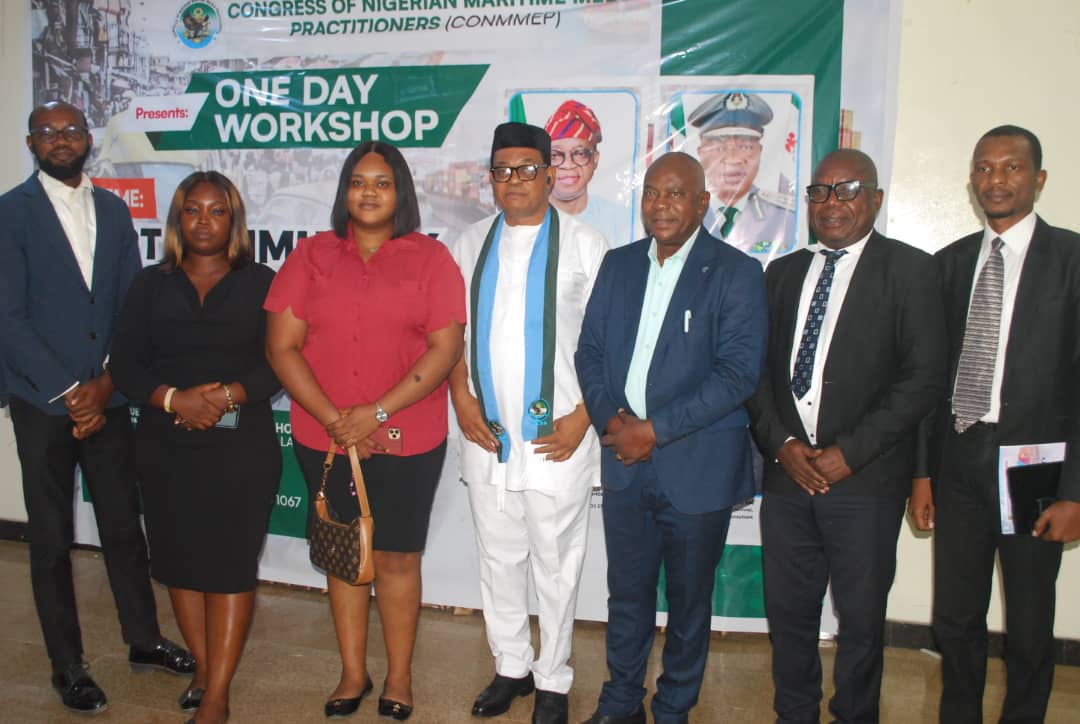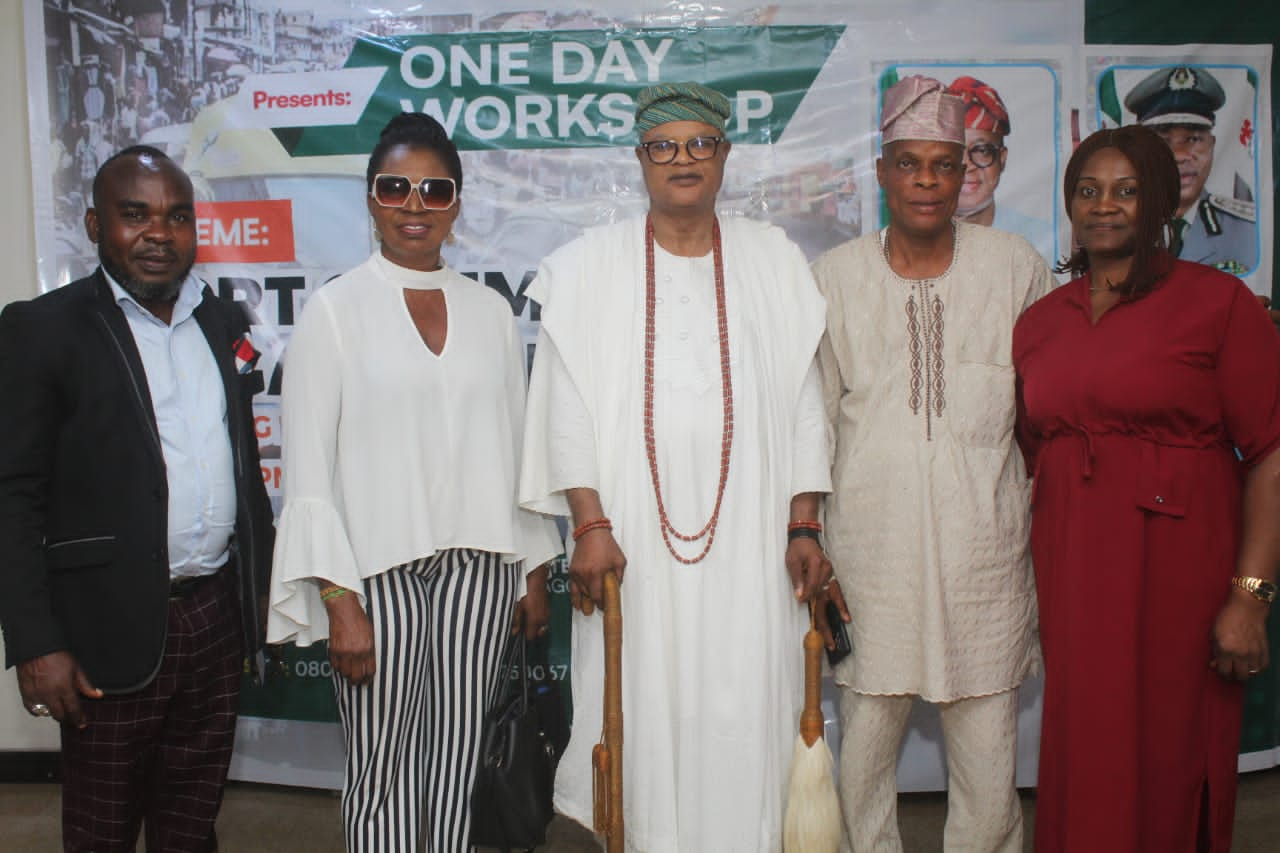
Stakeholders in Nigeria’s maritime industry have been called upon to prioritize partnerships and community engagement as key strategies to drive sustainable development within the sector.
This call was made during a one-day workshop organized by the Congress of Nigerian Maritime Media Practitioners (CONMMEP), which held on Tuesday in Lagos. The workshop was themed “Port Community Engagement: Building Partnerships for Sustainable Development.”
Speaking during his keynote address, Customs Area Controller (CAC) of Apapa port Command, Comptroller Babatunde Olomu highlighted the need for inclusive partnerships among key stakeholders in the port community.
Comptroller Olomu described community engagement as a collaborative process of working with various stakeholders, including customs agencies, shipping companies, and port operators, to address shared challenges and foster mutual growth. He underscored that such engagement not only improves operations but also contributes to the achievement of the United Nations Sustainable Development Goals (SDGs), which are essential for economic stability and social progress.
The Customs Area Controller elaborated on the benefits of community engagement, noting that it aids in informed decision-making by helping port authorities understand the concerns and priorities of the community. This, in turn, ensures that policies and projects are aligned with the needs of stakeholders. Olomu also pointed out that community engagement fosters shared knowledge, creating opportunities for mutual learning that strengthen economic stability. Additionally, he emphasized the role of digital platforms, such as Port Community Systems (PCS), in streamlining operations by enabling efficient information exchange and faster decision-making, especially in an era of advanced technology.

Olomu stressed that building partnerships is key to sustainable development. He explained that engaging stakeholders early in the development process ensures long-term support, even after primary funding ends. Sharing knowledge and technical expertise across agencies and nations facing similar challenges can lead to innovative solutions, while pooling resources enables stakeholders to adapt to evolving circumstances. He also advocated for flexibility in collaborative efforts to enhance port operations and foster trust between stakeholders and the community. Strengthening business alliances and participating in joint financing and innovation platforms were identified as additional strategies for achieving long-term goals.
On his part, one of the Special Guest of Honour, CEO of Dania & Associates, Chief Abdullahi Tony Dania called for more effective consultation and collaboration within the maritime industry to address its challenges and harness opportunities for sustainable growth.
Speaking during a panel session, Dania emphasized the need to engage stakeholders in meaningful dialogue to identify key issues and work towards practical solutions for the sector.
Highlighting the importance of streamlining the roles of local maritime agencies, he urged the Ministry of Marine and Blue Economy to focus on reducing duplicity among agencies in 2025. Chief Dania also proposed that licenses for shipping and related activities be extended beyond the current one-year period, suggesting a five-year duration for greater stability and long-term planning.
Chief Dania also pointed out the underutilized potential of the maritime sector, advocating for the exploration of hydroelectric energy generation from water deposits and other untapped resources. He further stressed the need for the separation of the Ministry of Marine and Marine Economy from the Ministry of Transportation to ensure focused development in the sector.
Addressing the ongoing debate on the creation of a National Coast Guard, Chief Dania acknowledged its potential benefits, but raised concerns about the readiness of the country for such an initiative. He noted that, while countries like the United States have established effective Coast Guard systems, Nigeria’s maritime communities remain underdeveloped, which could lead to challenges in integrating a National Coast Guard into existing security structures.
Dania also spoke about the need for an amendment to the Nigeria Maritime Administration and Safety Agency (NIMASA) Act, particularly in relation to the dollarization of maritime activities. He argued that charging businesses in dollars for local operations exacerbates the country’s foreign exchange challenges and suggested that such practices be revisited to ease the pressure on the economy.
Speaking earlier, Alhaji Tunde Umar-Daniah, President of CONMMEP, while welcoming participants to the workshop, reiterated the organization’s commitment to promoting sustainable growth in Nigeria’s ports. He highlighted the importance of addressing environmental degradation, economic inequality, and social disparities while fostering green infrastructure and climate resilience.
Umar-Daniah urged policymakers and stakeholders to act on the recommendations from the workshop, emphasizing the need for community-led initiatives and impactful policy reforms.
The workshop concluded with participants agreeing on the importance of collaborative efforts to overcome challenges and unlock the full potential of Nigeria’s maritime sector.















